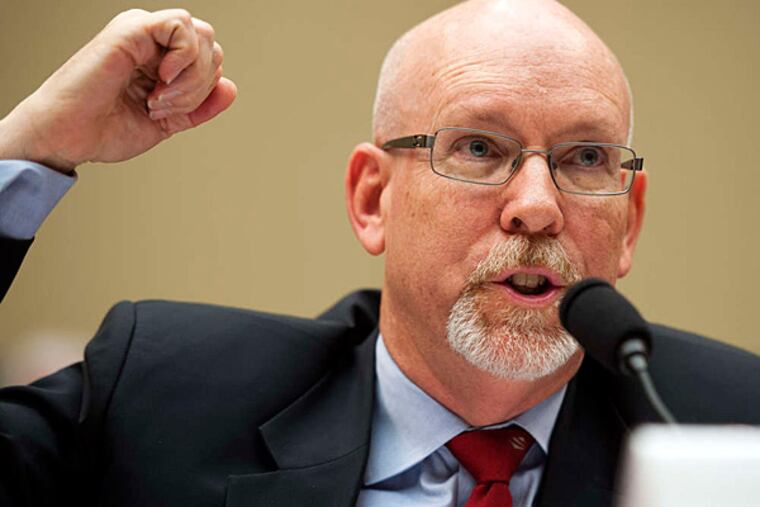U.S. diplomat recounts final call to ambassador
WASHINGTON - Minutes after Greg Hicks learned that the perimeter of the U.S. mission in Benghazi had been breached by men with guns, he punched a cellphone number to reach Ambassador J. Christopher Stevens, his immediate boss, who was at the scene.

WASHINGTON - Minutes after Greg Hicks learned that the perimeter of the U.S. mission in Benghazi had been breached by men with guns, he punched a cellphone number to reach Ambassador J. Christopher Stevens, his immediate boss, who was at the scene.
"Greg, we're under attack," Stevens told Hicks, the deputy chief of the mission, Hicks testified to Congress Wednesday.
Then the connection was lost. Hicks never spoke to his boss again. Stevens died soon afterward, as the Benghazi mission went up in flames around him.
Members of the House Oversight and Government Reform Committee were universal in their praise of the gripping, soft-spoken, minute-by-minute account they heard Wednesday from Hicks, the first public testimony from a government official who was on the ground in Libya during the assault that killed four Americans in September.
Hicks for the first time explained that Stevens had traveled to Benghazi at a delicate time - the anniversary of the Sept. 11 attacks - for a mundane, bureaucratic reason. The State Department wanted to shift money from Iraq to the Benghazi mission to make it permanent, and Stevens needed to complete some paperwork.
"Timing for this decision was important," Hicks said. "Chris needed to report before Sept. 30, the end of the fiscal year, on the physical and the political and security environment in Benghazi to support an action memo to convert Benghazi from a temporary facility to a permanent facility."
After the attack, the mission was evacuated, and it has not been reopened.
Hicks and two other State Department witnesses shed little new light on the key questions at issue in the hearing: whether there was anything more the U.S. military could have done to thwart the attack and whether the Obama administration intentionally misled the American people when officials initially said the attacks stemmed from a protest.
An independent review board has concluded that neither claim is true, but the GOP-controlled House is pressing on with investigations, with particular interest in the role of former Secretary of State Hillary Rodham Clinton, who may run for president in 2016.
Hicks testified that he received a phone call in Tripoli, Libya, from Clinton about 2 a.m. during the crisis. "Secretary of State Clinton called me, along - and along with her senior staff, were all on the phone. And she asked me what was going on. And I briefed her on developments," Hicks said.
Partisan politics loomed large over Wednesday's proceedings. Some House members have compared Benghazi to Watergate and to the 1980s sale of arms to Iran and diversion of the profits to Nicaraguan guerrillas.
The committee chairman, Rep. Darrell Issa (R., Calif.), complained that the administration and Democrats on the committee have not supported his efforts to have questions answered.